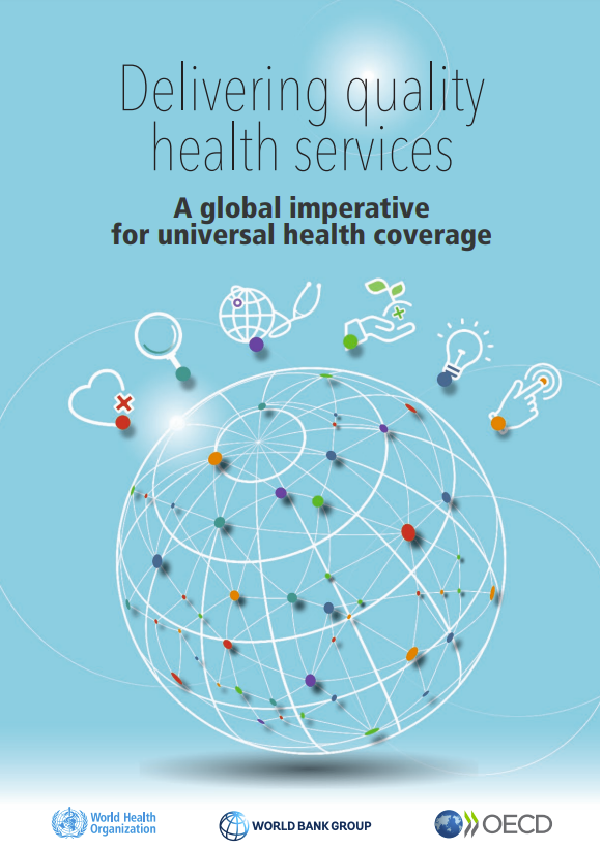This document – Delivering quality health services: a global imperative for universal health coverage – describes the essential role of quality in the delivery of health care services. As nations commit to achieving universal health coverage by 2030, there is a growing acknowledgment that optimal health care cannot be delivered by simply ensuring the coexistence of infrastructure, medical supplies and health care providers. Improvement in health care delivery requires a deliberate focus on quality of health services, which involves providing effective, safe, people-centred care that is timely, equitable, integrated and efficient. Quality of care is the degree to which health services for individuals and populations increase the likelihood of desired health outcomes and are consistent with current professional knowledge.
Data show that quality of care in most countries, particularly low- and middle-income countries, is suboptimal, as revealed by the following examples.
• Adherence to clinical practice guidelines in eight low- and middle-income countries was below 50% in several instances, resulting in low-quality antenatal and child care and deficient family planning.
• The Service Delivery Indicators initiative in seven low- and middle-income countries showed significant variation in provider absenteeism (14.3–44.3%), daily productivity (5.2–17.4 patients), diagnostic accuracy (34–72.2%), and, adherence to clinical guidelines (22–43.8%).
• A systematic review of 80 studies showed that suboptimal clinical practice is common in both private and public primary health care facilities in several lowand middle-income countries.
• Organisation for Economic Co-operation and Development (OECD) data from high- and middle-income countries show that 19–53% of women aged 50–69 years did not receive mammography screening, and that 27–73% of older adults (age 65 years and above) did not receive influenza vaccination.
BETTER HEALTH OUTCOMES THROUGH IMPROVEMENT IN QUALITY
High-quality health services involve the right care, at the right time, responding to the service users’ needs and preferences, while minimizing harm and resource waste. Quality health care increases the likelihood of desired health outcomes and is consistent with seven measurable characteristics: effectiveness, safety, peoplecentredness, timeliness, equity, integration of care and efficiency. For instance, in Pakistan, increasing first-contact accessibility to health care workers through the Lady Health Worker Programme improved management of pneumonia and lowered neonatal mortality.
BUILDING QUALITY MECHANISMS INTO THE FOUNDATIONS OF HEALTH CARE SYSTEMS
The five foundational elements critical to delivering quality health care services are health care workers; health care facilities; medicines, devices and other technologies; information systems; and financing. To ensure that quality is built into the foundations of systems, governments, policy-makers, health system leaders, patients and clinicians should work together to:
- ensure a high-quality health workforce;
- ensure excellence across all health care facilities;
- ensure safe and effective use of medicines, devices and other technologies;
- ensure effective use of health information systems;
- develop financing mechanisms that support continuous quality improvement











